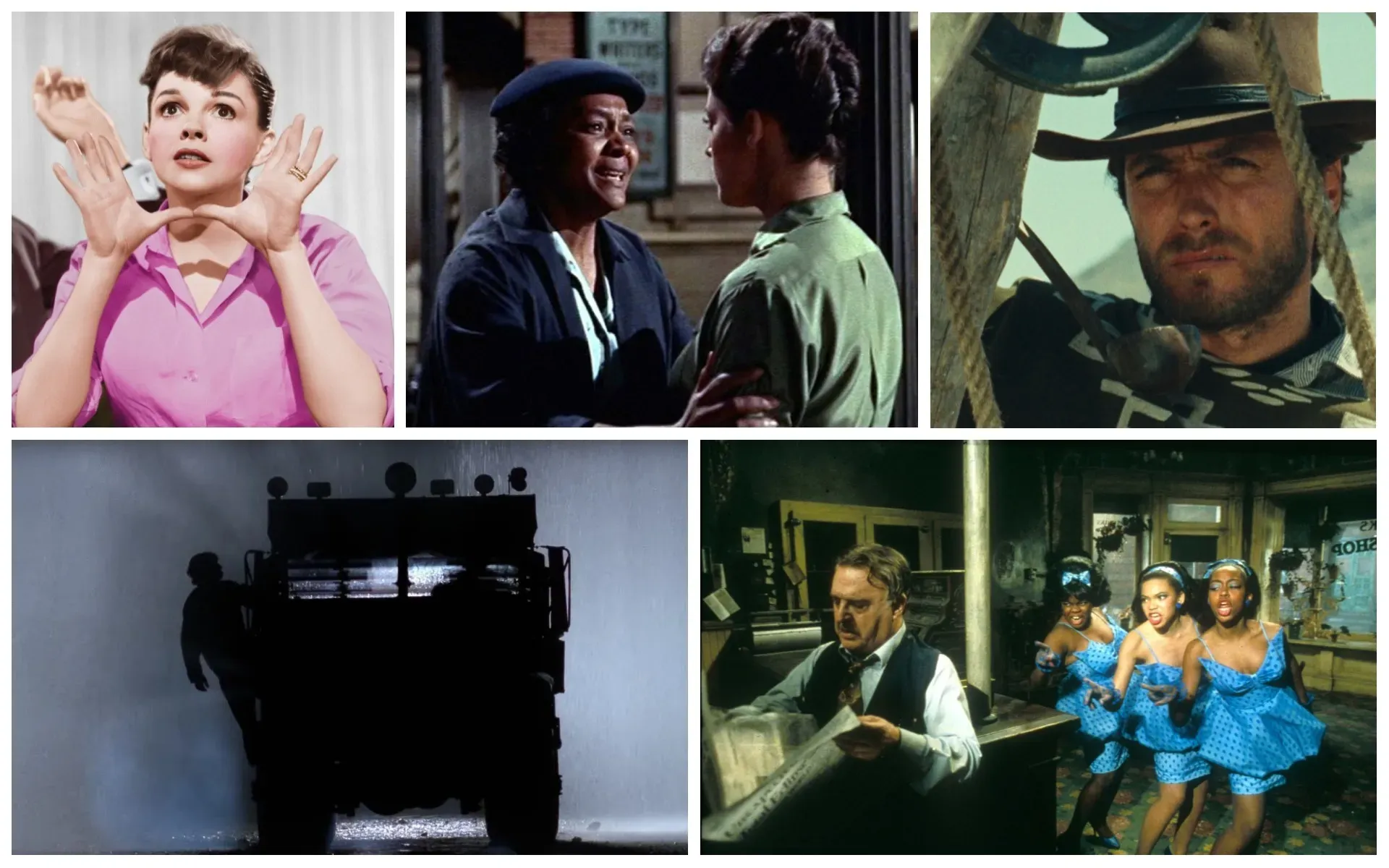When it comes to the **Best Movie Remakes**, Hollywood has a rich history of breathing new life into beloved stories. These **top movie remakes** often take familiar narratives and transform them, captivating audiences with fresh interpretations and innovative filmmaking techniques. While some remakes fall flat, others, like *Scarface* and *The Fly*, have become iconic, earning their place among the **famous film remakes** that redefine cinematic storytelling. From **classic movie remakes** that pay homage to their originals to bold reimaginings that introduce timeless tales to new generations, the art of remaking films continues to thrive. This exploration of the **best movie remakes** reveals how creativity and nostalgia can intertwine to create masterpieces that resonate across time.
In the realm of cinema, revisiting and reinterpreting films is a trend that has gained significant traction, leading to what we often refer to as remakes. These adaptations—sometimes hailed as **Hollywood movie remakes**—take existing stories and reframe them, allowing directors to explore different angles and themes. The phenomenon of remaking films has produced a plethora of successful projects, where the newer versions often capture the essence of the original while introducing contemporary relevance. As we delve into this captivating world of film, we will uncover some of the most remarkable adaptations that stand out among the **top movie remakes**, showcasing how they have not only honored their predecessors but also carved their own unique identities in the cinematic landscape.
The Art of Movie Remakes
Movie remakes serve as a fascinating aspect of the film industry, allowing directors to revisit and reinterpret stories that have stood the test of time. The process of remaking a film involves not only updating the narrative for a contemporary audience but also reimagining characters and themes in ways that resonate with modern viewers. This creative endeavor often leads to a deeper exploration of the original material, breathing new life into established narratives and providing fresh perspectives that can make the tale feel relevant again.
Moreover, the art of remaking films is not without its challenges. Filmmakers must strike a delicate balance between honoring the source material and infusing their own vision to avoid being seen as mere copycats. Successful remakes, such as *The Departed* and *Scarface*, demonstrate how innovative storytelling can elevate the original concept, often resulting in a film that not only pays homage to its predecessor but also stands on its own as a cinematic achievement.
Best Movie Remakes That Redefined Genres
Some of the best movie remakes have not only captivated audiences but have also redefined entire genres. For instance, the remake of *Dune* by Denis Villeneuve has been lauded for its ambitious storytelling and stunning visuals, which have set a new standard for science fiction films. By approaching the complex narrative of Frank Herbert’s work with a modern lens, the film has introduced a new generation to a classic tale, showcasing how remakes can revitalize interest in a genre that may have felt stale.
Similarly, *The Fly* is another remarkable example of a remake that transcends its original. David Cronenberg’s adaptation transformed a simple horror concept into a profound exploration of identity and transformation, effectively elevating the horror genre. The success of these remakes proves that when filmmakers take creative risks and infuse their unique styles, they can produce works that not only honor the original films but also offer new dimensions and meanings that resonate with today’s audiences.
Classic Movie Remakes That Surprised Audiences
The realm of classic movie remakes is filled with surprises, as many films have emerged that significantly outshine their originals. For instance, the 1954 version of *A Star Is Born* has become iconic primarily due to Judy Garland’s unforgettable performance and the film’s musical elements. This remake not only captivated fans of the original but also introduced a new style of storytelling that blended drama with powerful musical performances, showcasing how remakes can evolve a classic narrative into something fresh and engaging.
Another noteworthy classic remake is *Ben-Hur*, which revitalized the 1925 silent film with groundbreaking cinematography and epic storytelling. The 1959 version not only won numerous Academy Awards but also solidified its place in film history as a monumental achievement. These classic remakes demonstrate the ability of filmmakers to take beloved stories and transform them into something that feels both new and familiar, ultimately surprising audiences with their creativity and execution.
Famous Film Remakes That Achieved Critical Acclaim
Several famous film remakes have garnered critical acclaim, showcasing the potential of reimagined stories to resonate with both critics and audiences alike. *Casino Royale*, which marked Daniel Craig’s debut as James Bond, is a prime example of how a remake can successfully reinvigorate a long-standing franchise. By adopting a more realistic tone and delving deeper into Bond’s character, this film redefined the spy genre and set a new benchmark for future installments.
Additionally, *The Thing* remains a celebrated remake that has earned its status as a cult classic. John Carpenter’s 1982 adaptation not only expanded upon the original film’s premise but also introduced groundbreaking special effects that have left a lasting impact on the horror genre. These famous remakes highlight that when filmmakers approach beloved stories with innovative ideas and artistic vision, they can create films that not only pay tribute to their origins but also stand out as remarkable achievements in their own right.
Hollywood Movie Remakes That Shook the Industry
Hollywood has produced numerous remakes that have significantly impacted the film industry, shaking conventions and expectations about storytelling. For example, *The Departed* took the original Hong Kong film *Infernal Affairs* and seamlessly adapted it to a Boston crime setting, showcasing how cultural contexts can shift narratives in powerful ways. Martin Scorsese’s film not only achieved commercial success but also received critical acclaim, earning him an Academy Award for Best Director.
Remakes like *Scarface* also exemplify how Hollywood can transform narratives to reflect contemporary issues. Al Pacino’s portrayal of Tony Montana in this vibrant retelling of the original 1932 film has become a cultural touchstone, influencing countless works in various media. These Hollywood movie remakes demonstrate the industry’s ability to reinvent stories, ensuring that they remain relevant and engaging for new audiences.
The Evolution of Remakes in Cinema
The evolution of remakes in cinema reflects broader changes in societal values, technology, and audience expectations. In earlier decades, remakes often focused on preserving the original’s charm while making minor updates to suit contemporary tastes. However, today’s filmmakers are more inclined to take creative liberties, reimagining plots and characters to explore deeper themes and modern issues. This evolution signifies a shift in how stories are told, with an emphasis on innovation alongside homage.
Moreover, advancements in technology have played a crucial role in the evolution of movie remakes. Modern filmmakers now have access to sophisticated visual effects and editing techniques, allowing them to create stunning cinematic experiences that were once unimaginable. This capability has led to remakes that not only retell familiar stories but also enhance them with breathtaking visuals, making the films appealing to both nostalgic audiences and new viewers.
Cultural Impact of Movie Remakes
The cultural impact of movie remakes is profound, as they often reflect societal changes and evolving narratives. For instance, remakes can highlight contemporary social issues, allowing filmmakers to address topics such as identity, race, and gender in ways that resonate with today’s audiences. This cultural relevance not only breathes new life into old stories but also facilitates important conversations about the themes and values presented in these films.
Furthermore, movie remakes often serve as a bridge connecting generations of viewers. By reimagining classic films, directors can introduce timeless stories to younger audiences, ensuring that these narratives continue to be part of the cultural conversation. This intergenerational exchange fosters a shared cinematic experience that enriches the overall appreciation of film as an art form.
The Future of Movie Remakes
As we look to the future of movie remakes, it is evident that the trend will continue to evolve. Filmmakers are likely to explore even more diverse stories from various global perspectives, allowing for a richer tapestry of narratives that reflect the world we live in today. This broadening of scope can lead to innovative remakes that challenge traditional storytelling methods and embrace fresh ideas that resonate with a global audience.
Additionally, with the rise of streaming platforms, the accessibility of both original films and their remakes will likely increase. This change in viewing habits presents an opportunity for filmmakers to experiment with various formats and styles, further expanding the possibilities of what a remake can achieve. The future of movie remakes promises to be as dynamic and multifaceted as the stories they aim to retell.
Frequently Asked Questions
What are the best movie remakes of all time?
The best movie remakes of all time include classics such as *The Wizard of Oz* (1939), *Scarface* (1983), and *The Departed* (2006). These films have successfully revitalized original stories, showcasing unique interpretations that resonate with modern audiences.
Why are classic movie remakes so popular?
Classic movie remakes are popular because they breathe new life into beloved stories, allowing filmmakers to explore contemporary themes and innovative storytelling techniques. This often leads to enhanced visuals and deeper narratives that attract both old fans and new viewers.
What makes a Hollywood movie remake successful?
A successful Hollywood movie remake typically combines a strong script, skilled direction, and compelling performances. By reimagining the original film’s themes and characters while incorporating modern elements, remakes can achieve greater engagement and popularity.
Can remakes be better than the original films?
Yes, some famous film remakes have outshone their originals. For instance, *The Departed* (2006) is widely regarded as superior to its predecessor *Infernal Affairs*. A successful remake often introduces fresh perspectives that enhance the overall storytelling.
What are some examples of top movie remakes?
Examples of top movie remakes include *A Star Is Born* (1954), *Ben-Hur* (1959), and *The Fly* (1986). These films are celebrated for their innovative approaches to original stories, making them standout entries in film history.
How do remakes impact the film industry?
Remakes impact the film industry by reviving interest in classic stories, introducing them to new audiences, and often generating substantial box office revenue. They also reflect changing cultural values and trends, allowing filmmakers to connect with contemporary viewers.
What is the significance of remakes in cinema?
The significance of remakes in cinema lies in their ability to reinterpret and reintroduce stories, allowing filmmakers to explore different genres and themes. This can lead to greater artistic expression and innovation, making remakes a vital part of film history.
Are there any famous movie remakes that failed?
Yes, there are several famous movie remakes that failed to capture the magic of their originals, such as *The Wicker Man* (2006) and *Total Recall* (2012). These remakes often faced criticism for lacking the originality and charm of the classic films they attempted to revive.
What are the characteristics of the best movie remakes?
The best movie remakes typically feature strong character development, innovative storytelling, and high production values. They successfully reinvent the original narrative while maintaining its core themes, appealing to both nostalgic viewers and new audiences.
How do modern audiences view classic movie remakes?
Modern audiences often view classic movie remakes with curiosity and skepticism. While some appreciate the updated visuals and storytelling, others may prefer the nostalgia and simplicity of the original films, leading to varied opinions on the effectiveness of remakes.
| Rank | Movie Title | Original Release Year | Director | Key Features |
|---|---|---|---|---|
| 10 | The Talented Mr. Ripley | 1955 | Anthony Minghella | Psychological thriller with sociopathic themes. |
Summary
The Best Movie Remakes have proven to be a significant part of cinematic culture, showcasing the ability of filmmakers to breathe new life into classic tales. From *The Wizard of Oz* to *Scarface*, these remakes not only honor their originals but also elevate the stories to new heights, allowing them to resonate with contemporary audiences. The successful adaptations often highlight the creative risks taken by directors and actors, resulting in unforgettable performances and innovations in film techniques. Ultimately, the journey of these remakes underscores the timeless nature of storytelling and the importance of revisiting and reinterpreting narratives that continue to captivate viewers.








